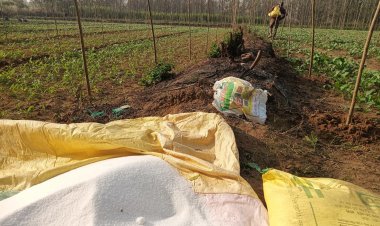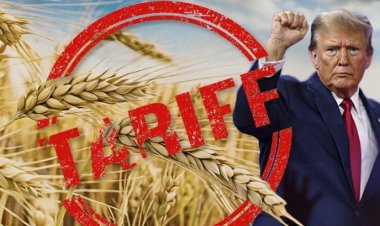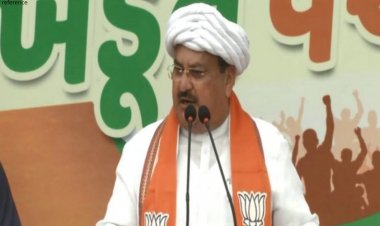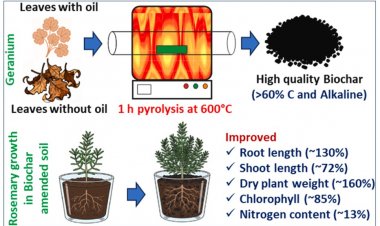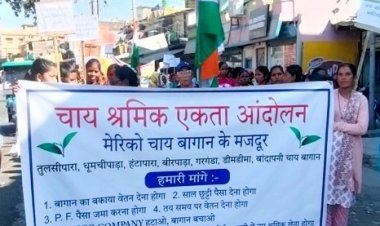Temp rise: Damage to wheat crops unlikely, says Govt
The weather department made a presentation with regard to the weather conditions. "So, no heat wave to the extent that would damage the wheat crop is expected over the next two weeks, which is a crucial period for the formation of the grain," the secretary said.
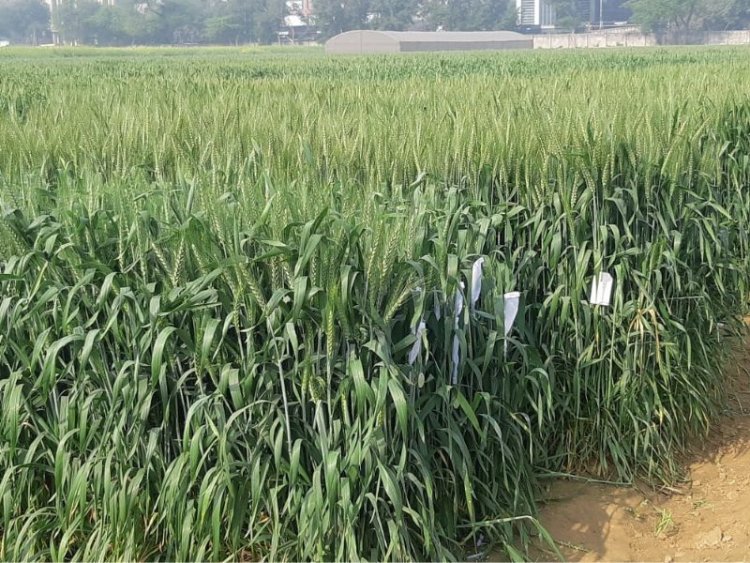
Wheat crops are unlikely to get damaged although temperatures are little bit on higher side, Union Food Secretary Sanjeev Chopra said and exuded confidence of achieving a record output of 112 million tonne in this crop year ending June.
Chopa said the ban on wheat exports would continue, boosting the availability of grains for the government procurement. The government would procure around 35 million tonne of wheat in 2023-24 marketing year (April-March). The bulk of procurement of wheat, a major rabi crop, takes place between April and June.
He said wheat prices have come down and would ease further after the arrival of new crop. "(On Wednesday), we had a meeting with state food secretaries, which was followed by a meeting with state food ministers. And what we have discovered in the meeting is that the food scenario in the country is very, very comfortable," Chopra said on the sidelines of an event in New Delhi.
The weather department made a presentation with regard to the weather conditions. "So, no heat wave to the extent that would damage the wheat crop is expected over the next two weeks, which is a crucial period for the formation of the grain," the secretary said.
"So there are no reports as of today of any shrivelled wheat or any other adverse conditions for the wheat crop," Chopra said. He was hopeful of achieving the projected 112.18 million tonne output in this crop year, as per the second advance estimates by the agriculture ministry.
Related story: Govt fixes wheat procurement target at 34.15 MT for 2023-24
India's wheat production fell 107.74 million tonne in 2021-22 crop year (July-June) from 109.59 million tonne in the previous year due to heat wave in some key producing states. "There are no adverse weather condition as of now. The temperature is above normal by 3-4 degree Celsius but the fact remains it is not going to impact the wheat adversely," Chopra said, adding that although temperatures are little on higher side, there is no damage expected to wheat crops.
Asked about the impact on retail prices of wheat after the government's decision to sell 5 million tonne of wheat in open market, Chopra said the rates have come down by almost 10 per cent. "The Mandi prices, which was a matter of concern for us, are also coming down gradually," he noted. The modal prices of wheat at mandi level have come down to Rs 2,300 per quintal from Rs 2,800 per quintal on January 25 when Open Market Sale Scheme (OMSS) was launched, he informed.
The prices are with respect to the wheat of the previous season which is coming to the market. "So as and when we start getting the wheat of this season into the market, so obviously we will find that the prices go down further," Chopra said.
On whether more quantity will be sold under OMSS, he said the 5 million tonne announced so far would be enough. The Food Corporation of India (FCI) has already sold about 2.34 million tonne wheat to bulk consumers out of 4.5 million tonne earmarked. Two more rounds of auctions will happen this month. "So we are hopeful that more stocks will get lifted and the prices have already come down," Chopra said.
The secretary said the government has set a procurement target of 34.1 million tonne of wheat for 2023-24 marketing year. So, 341 lakh tonne (34.1 million tonne) should give us a very comfortable position with regard to our stocks," he said. The average wheat procurement has been 35 million tonne, Chopra said, replying to a query related to lower target fixed by the government.
The Centre had procured around 44 million tonne in 2021-22 marketing year, but it fell to nearly 19 million tonne in 2022-23. The government requires approximately 1.5 million tonne a month for the National Food Security Act (NFSA) and other welfare schemes.
Asked about private trade buying strategy this year, Chopra said: " Since export ban is going to continue, We expect that there will be more wheat available for the public procurement." As of now, he said, the government has no proposal for lifting the export ban. The government banned wheat exports in May last year to check prices of wheat and atta.
On chances that wheat prices may fall below MSP with arrival of new crops hurting farmers' interest, the secretary said the rates would remain around MSP only. On plans to lift ban on broken rice, the secretary said there is no proposal at the moment and the government will take a call on allowing exports when it feels comfortable about the national food security.



 Join the RuralVoice whatsapp group
Join the RuralVoice whatsapp group

















